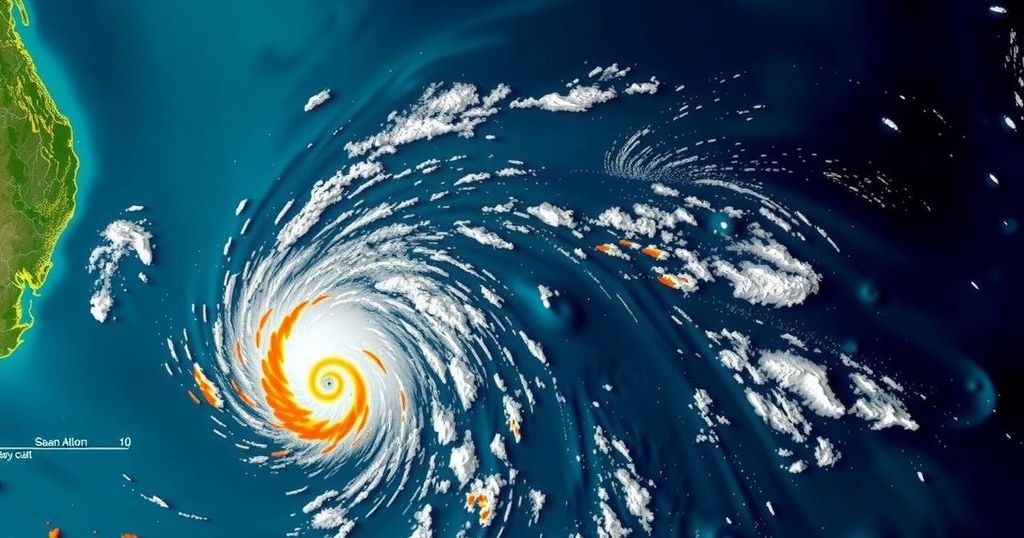Weather Update: Hurricane Oscar Strengthens in the Atlantic as Australia Faces Extreme Heat

Hurricane Oscar, now the 10th hurricane of the 2024 Atlantic season, struck the Turks and Caicos Islands and is expected to affect Cuba and eastern Canada. Simultaneously, Australia is enduring a significant heatwave with record temperatures, leading to heavy rainfall and severe thunderstorms in various regions.
Hurricane Oscar has intensified into the 10th hurricane of the 2024 Atlantic season, making landfall on the Turks and Caicos Islands on Saturday night before progressing to the southern Bahamas on Sunday. Initially deemed unlikely to develop into a tropical cyclone, Oscar emerged from a tropical wave that originated in western Africa on October 10, triggering thunderstorms and gusty winds over the Cabo Verde Islands. However, as it traversed the Atlantic, dry air hindered its organization until it reached a point north of Puerto Rico on October 19, where it exhibited sufficient thunderstorm activity to be designated as a tropical storm. Hurricane hunters subsequently identified hurricane force winds, prompting Oscar’s upgrade to hurricane status. The storm is forecasted to influence eastern Cuba on Monday, subsequently transitioning to a potent extratropical cyclone and potentially generating wind gusts exceeding 70 mph in southeastern Canada later this week. In another part of the world, Australia is currently experiencing unseasonably high temperatures. The month of October has shown a continuous trend of warmth following the warmest August and fourth-warmest September on record. Recent days have witnessed regions in the south and east experiencing daily highs in the high 30s and low 40s Celsius, significantly surpassing the October mean. South Australia recorded its highest temperature in 29 years, with Coober Pedy registering 43.7°C, while parts of Queensland experienced temperatures up to 11°C above average over the weekend. This heatwave has precipitated heavy showers and thunderstorms across the region. Conditions in New South Wales and Victoria were particularly severe on Friday, as torrential rains led to flash flooding in some areas, with one town in Victoria receiving an astounding 50 mm of rain in merely 45 minutes. This weather pattern was further exacerbated by strong winds, hailstones comparable in size to gold balls, and approximately half a million lightning strikes. The heatwave is forecasted to migrate northwards across Western Australia over the coming week, with nighttime temperatures in some locations expected to remain above 30°C.
The article discusses the developments of Hurricane Oscar in the Atlantic, detailing its formation, trajectory, and expected impact, as well as the ongoing extreme weather conditions in Australia. A tropical wave from western Africa, after initial instability, transformed into Hurricane Oscar, which is currently causing severe weather conditions in the Caribbean. Meanwhile, Australia is grappling with record-high temperatures, following an unseasonably warm autumn, resulting in severe climatic conditions including heavy rains and thunderstorms.
In conclusion, Hurricane Oscar has emerged as a significant weather event in the Atlantic, impacting the Caribbean region and expected to influence southeastern Canada soon. Concurrently, Australia is experiencing extreme heat and severe climatic disturbances, highlighting the diverse and challenging weather patterns across different parts of the globe. Both situations underscore the importance of preparedness and vigilance in the face of changing weather systems.
Original Source: www.theguardian.com







